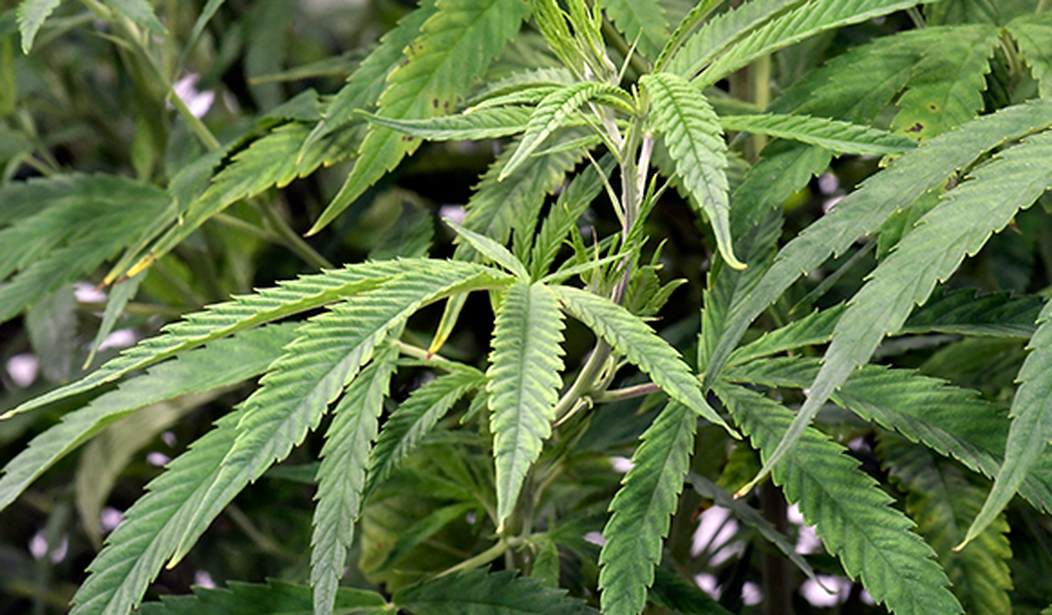During the next year, California officials said last week, the state expects to seize "more than $1 billion worth of illegal cannabis products." That announcement came a few weeks after the U.S. Justice Department bragged about guilty pleas by 11 unlicensed California marijuana merchants who had been nabbed with help from state and local law enforcement agencies.
The continuing war on weed in California, which supposedly legalized marijuana in 2016, reflects the striking failure to replace black-market dealers with state-licensed vendors, a plan that has been doomed by high taxes, local bans and overregulation. Judging from the marijuana legalization bill he introduced last week, Senate Majority Leader Chuck Schumer (D-N.Y.) has learned nothing from that experience.
Six years after California voters approved recreational marijuana, unauthorized suppliers still account for somewhere between two-thirds and three-quarters of sales. A recent report from the Reason Foundation (my employer) highlights one major reason why licensed businesses have had so much trouble competing with illegal suppliers: Taxes are too high.
Geoff Lawrence, the foundation's managing director of drug policy, found that California's effective tax rate ranged from $42 to $90 per ounce, depending on the jurisdiction, compared to an estimated wholesale production cost of $35 per ounce. The corresponding rates in Colorado and Oregon, both of which have been more successful at displacing the black market, are about $33 and $21, respectively.
Despite modest tax relief approved this year, legal marijuana remains overpriced in California. It is also inconvenient to buy in much of the state, Lawrence notes, thanks to local sales bans that have created "massive cannabis deserts" where "consumers have no access to a legal retailer within a reasonable distance of their home."
Recommended
Legal sellers also must contend with burdensome licensing requirements and regulations. Dale Gieringer, California director of the National Organization for the Reform of Marijuana Laws, says those rules help explain why legal marijuana prices are much higher than he anticipated.
"It turned out that I had vastly underestimated the cost of the regulations imposed by the new law," Gieringer writes in an introduction to the Reason Foundation report. "In addition to state and local licensing fees, there were elaborate rules on cultivation, retailing, transportation, manufacture, testing, facility siting, ownership, security, storage, on-site consumption, wholesale distribution, seed-to-sale tracking, waste disposal, labeling, packaging, environmental compliance, water usage, etc. ad nauseam."
Despite years of complaints about these barriers, Schumer decided that the cannabis industry needs more taxes and regulations. His 296-page Cannabis Administration and Opportunity Act, which is cosponsored by Sens. Ron Wyden (D-Ore.) and Cory Booker (D-N.J.), includes 52 pages dealing with taxation and 71 pages prescribing new regulations for marijuana businesses.
Schumer's bill calls for a federal excise tax starting at 10% and rising to 25% by the fifth year, which would be in addition to frequently hefty state and local taxes. Implicitly acknowledging the counterproductive impact of those levies, the bill would cut the rates in half for businesses with proceeds below specified levels.
Schumer wants to charge the Food and Drug Administration (FDA) with registering marijuana businesses, setting product standards, establishing labeling requirements, policing "adulterated" and "misbranded" products, regulating advertising and promotion and imposing "restrictions on sale and distribution." In addition to mandating specific rules, such as a nationwide minimum purchase age of 21 and a ban on adding flavors to cannabis vaping products, the bill would authorize the FDA to impose any restrictions it deems "appropriate for the protection of the public health."
Given the FDA's dubious sense of what protecting public health means in other areas, such as regulation of tobacco and nicotine vaping products, that is a pretty scary clause. As in those contexts, whatever arbitrary rules the agency comes up with are bound to restrict consumer choice and help perpetuate the black market.
"By failing to act," Wyden says, "the federal government is empowering the illicit cannabis market." That's exactly what this bill's taxes and regulations would do.

























Join the conversation as a VIP Member